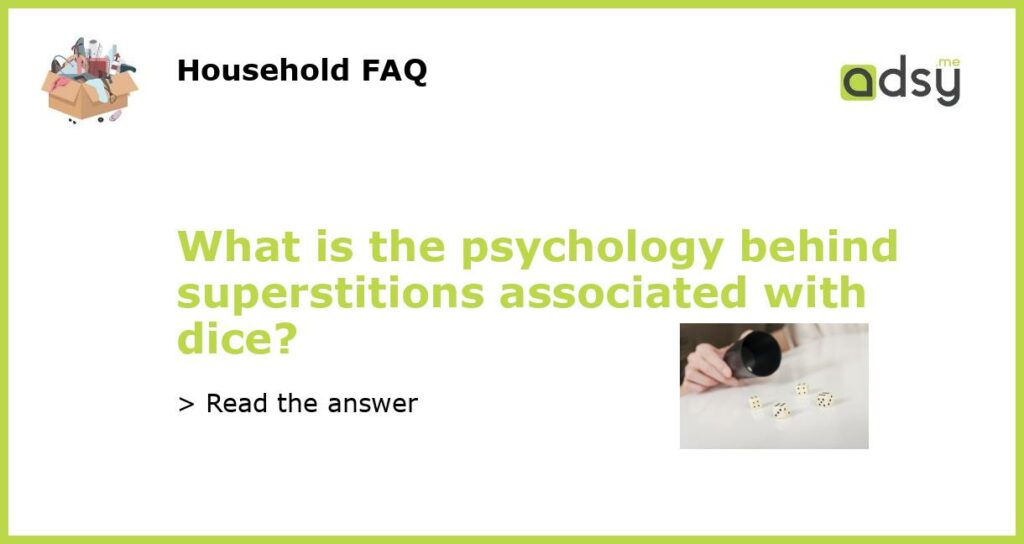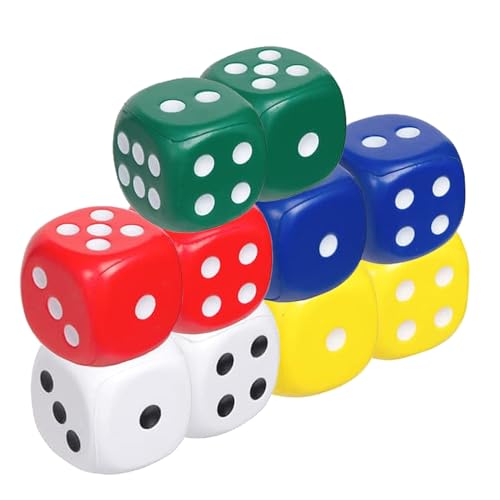The Origins of Superstitious Beliefs
The roots of superstitious beliefs surrounding dice can be traced back to ancient civilizations. The ancient Egyptians believed that dice were imbued with divine power and often used them in religious ceremonies. The Greeks and Romans also believed that dice were connected to the supernatural, and some even believed that certain numbers were unlucky. These beliefs have been passed down through the centuries, and even in modern times, many people still hold superstitious beliefs about dice.
The Role of Luck in Dice Games
One reason why people may be superstitious about dice is the role that luck plays in dice games. Unlike other games where skill plays a more significant role, dice games rely almost entirely on luck. This lack of control over the outcome of the game can lead some players to believe that they must rely on external factors, such as superstitions or lucky charms, to influence the outcome in their favor.
The Psychology of Superstitions
Superstitions, in general, are fueled by a combination of anxiety, uncertainty, and a need for control. When faced with a stressful or unpredictable situation, such as a game of chance, some people may turn to superstitions as a way to regain a sense of control over the outcome. The belief that they can influence the outcome through their actions or the use of lucky charms can help alleviate their anxiety and give them a sense of power over the situation.
The Reinforcement of Superstitious Beliefs
One factor that reinforces superstitious beliefs surrounding dice is the tendency for people to remember more vividly the times when their superstitions seem to have worked. This phenomenon is known as confirmation bias, and it can cause people to overlook the countless times that their lucky charms or rituals failed to bring them good fortune. The reinforcement of these beliefs can lead to a stronger conviction in the power of superstitions and can cause people to rely on them even more heavily.
The Role of Culture and Tradition
Finally, the influence of culture and tradition cannot be overlooked in understanding the psychology behind superstitious beliefs about dice. Many cultures have their own unique superstitions surrounding dice, and some of these beliefs have been passed down through generations. These beliefs become ingrained in the cultural fabric, and even those who do not believe in them may still carry them out simply because it is a cultural tradition. As such, the psychological influences on superstitious beliefs surrounding dice are complex and can be influenced by a myriad of factors.






